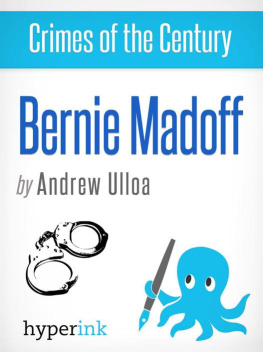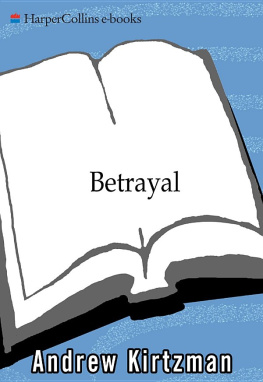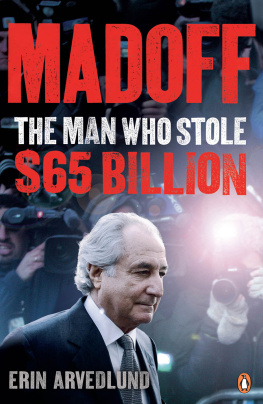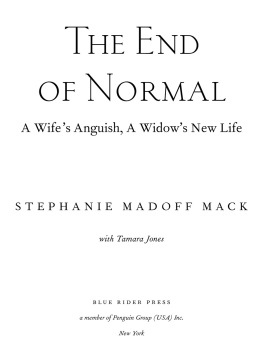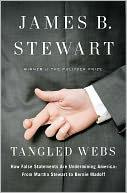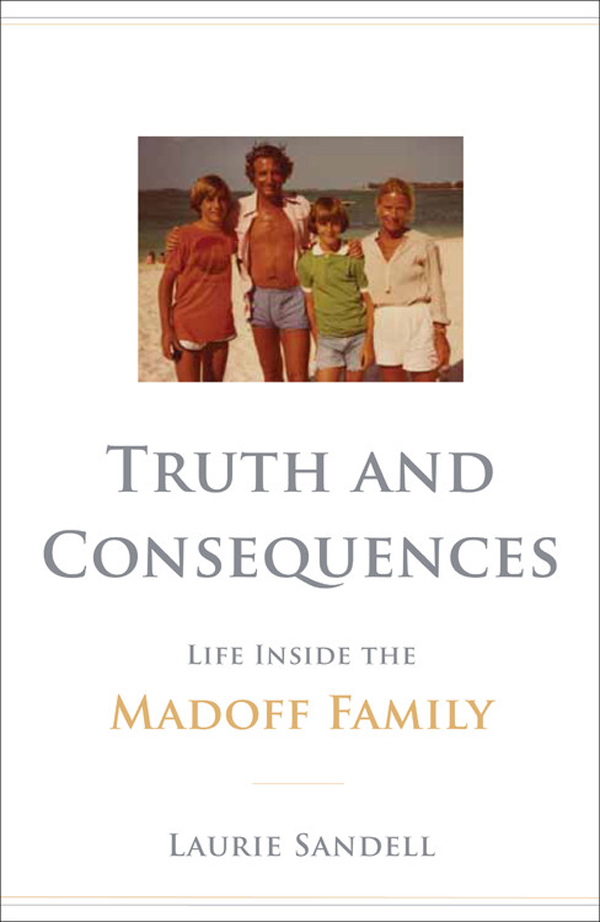Copyright 2011 by Laurie Sandell
All photographs courtesy of the Madoff family, unless otherwise stated.
Cover design by Mario J. Pulice
Cover 2011 Hachette Book Group, Inc.
All rights reserved. Except as permitted under the U.S. Copyright Act of 1976, no part of this publication may be reproduced, distributed, or transmitted in any form or by any means, or stored in a database or retrieval system, without the prior written permission of the publisher.
Little, Brown and Company
Hachette Book Group
237 Park Avenue, New York, NY 10017
www.hachettebookgroup.com
www.twitter.com/littlebrown
First e-book edition: October 2011
The publisher is not responsible for websites (or their content) that are not owned by the publisher.
Certain names and identifying details of people portrayed in this book have been changed. Maria, Jeremy, and Randy; Catherines college boyfriend, Marco; and Jack Hearn are all pseudonyms.
The Hachette Speakers Bureau provides a wide range of authors for speaking events. To find out more, go to www.hachettespeakersbureau.com or call (866) 376-6591.
ISBN 978-0-316-19892-9
The Impostors Daughter: A True Memoir
For my sisters,
Karyn Geringer and Sylvie Sandell

I n the summer of 2009, my first book was released, a graphic memoir called The Impostors Daughter. The book was about finding out that my eccentric, charming Argentine father was in fact a pathological liar and con artist. Instead of working for the CIA, as Id long suspected, hed lived off stolen cash from friends and family. His college degrees were forged, his heroics in Vietnam invented. The revelations threw a grenade into the middle of our family and caused a rift that has yet to heal: My mother denied what Id written and refused to read the manuscript; my father stopped speaking to me. Still, I knew that the consequences of remaining silent were greater than those of telling the truth. So I wrote the book in spite of my familys protests.
About a month after it came out, I was backstage after a reading when two women approached and asked if they could speak to me privately. The shorter of the two was dressed in a soft silk blouse with cigarette pants and had thick dark hair that fell in waves to the middle of her back. She looked to be in her midthirties.
This reading really hit home, she said. Im so sorry for what happened to you.
Tell her who you are, her friend urged.
I hope you can be discreet. Im the fiance of Andrew Madoff. As if I didnt recognize the name, she added, Hes the son of Bernard Madoff.
I tried not to register shock; the scandal wasnt even a year old and was still making headlines on a daily basis. I now recognized the name of the woman standing in front of me: Catherine Hooper. In the press, shed been labeled a home-wrecker. Supposedly, Andrew had left his wife of sixteen years to be with her. She said shed heard of my book but hadnt yet read it and that she planned to give a copy to Andrew that night; she wondered if I wanted to meet for coffee later in the week. We spoke for a few more minutes and I gave her my business card. Though my fathers cons were small compared with Bernie Madoffs, I could relate to the devastating effect that lies, grandiosity, and secretiveness could have on a person. I, too, believed my father was brilliant and unimpeachable, until I was in my thirties and a much-published magazine writer. Id even had the unsettling experience of having people ask, How do we know that youre not a liar, given your fathers history? So Andrew and Iand Catherine, by proxybelonged to the same small society; we understood each other in a way that few other people could.
Still, Andrew was a Madoff, and that meant I needed to proceed with caution. Id already been taken in by one sociopathmy own fatherand I wasnt about to get involved with another. All I knew about Andrew was what Id read in the press, and the majority of articles suggested he was going to be taken away in handcuffs any day. At the time, my curiosity was greater than my trepidation, so when Catherine invited me to dinner at their home, I went. Andrew looked like the photos Id seen in Vanity Fair: a tall, more handsome version of his father. I found him to be humble, self-effacing, and quieter than Id anticipated. But questions about my father tumbled out of him as if hed been storing them up: What was my relationship like with him today? How was I handling my anger, and my grief? What had I done with the photos of himhad I torn them up? Andrew had kept only one on display, a large one that hung in the hallway near his front door. In it, Andrew stood on a dock next to a large bluefin tuna. Bernie stood in the background, smiling proudly, wearing a green velour crewneck shirt and running shorts.
During dinner, Catherine and Andrew shared highly personal details about the days and weeks following the confession. By then, theyd both read my book; I got the sense that they saw me as a comrade of sorts, though in reality I was a journalist who owed them no allegiance. Fascinated, I listened to Andrews account of what it was like when he came home the night his father dramatically confessed to running the worlds largest Ponzi scheme, and then how he handled the crush of paparazzi that appeared in the following days and the overnight alienation from his parents.
Over the next two years, I was offered a glimpse inside a world that had been stripped of a future and existed only in a tenuous present. Andrew and Catherine invited me to Thanksgiving dinner; estranged from my own father, I chose to go. They had gathered a group of friends who were also at odds with their families or lived too far away to make the trip home. But old friends of Andrews, and even Andrews brother, Mark, were nowhere to be found.
As Catherine and Andrew took me further into their confidenceand later introduced me to Andrews mother, RuthI would come to discover that Andrew was not a sociopath; that he was, as much as he detested the word, a victim of his father like so many thousands of others. I observed, firsthand, the deep anguish he was suffering over his fathers betrayal and the fallout that followed. I also learned that the Madoff family dysfunction was far worse than anything reported in the press: There had been affairs, power struggles between the siblingseven, I was shocked to find out, multiple suicide attempts. The story was Shakespearean in scope, yet only the most banal details had been made available to the public. Andrew, whod been muzzled by his lawyers since the day of the confession, desperately wanted to tell his story. Catherine was prepared to support him, as she had all along. Ruth, whose relationship with Andrew was still precarious, just wanted her family back, telling me poignantly, I dont miss the moneyI miss nothing except my friends.
In early 2011, Catherine approached me with an idea for a book on emergency preparedness as a companion guide to her company, Black Umbrella. I offered to put her in touch with my contacts in publishing, but it quickly became clear that she was not going to be able to move on with her life and focus on her passion until shed addressed the elephant in the room: the Madoff story. Catherine talked to various family members and together they reached the conclusion to talk about their painful past. I did not hesitate to accept the invitation to delve into their lives. After all, Id gone through a similarand singularexperience of betrayal. I felt uniquely qualified to cut through the emotion and self-interest that can accompany a story like this one, and get to the truth.


